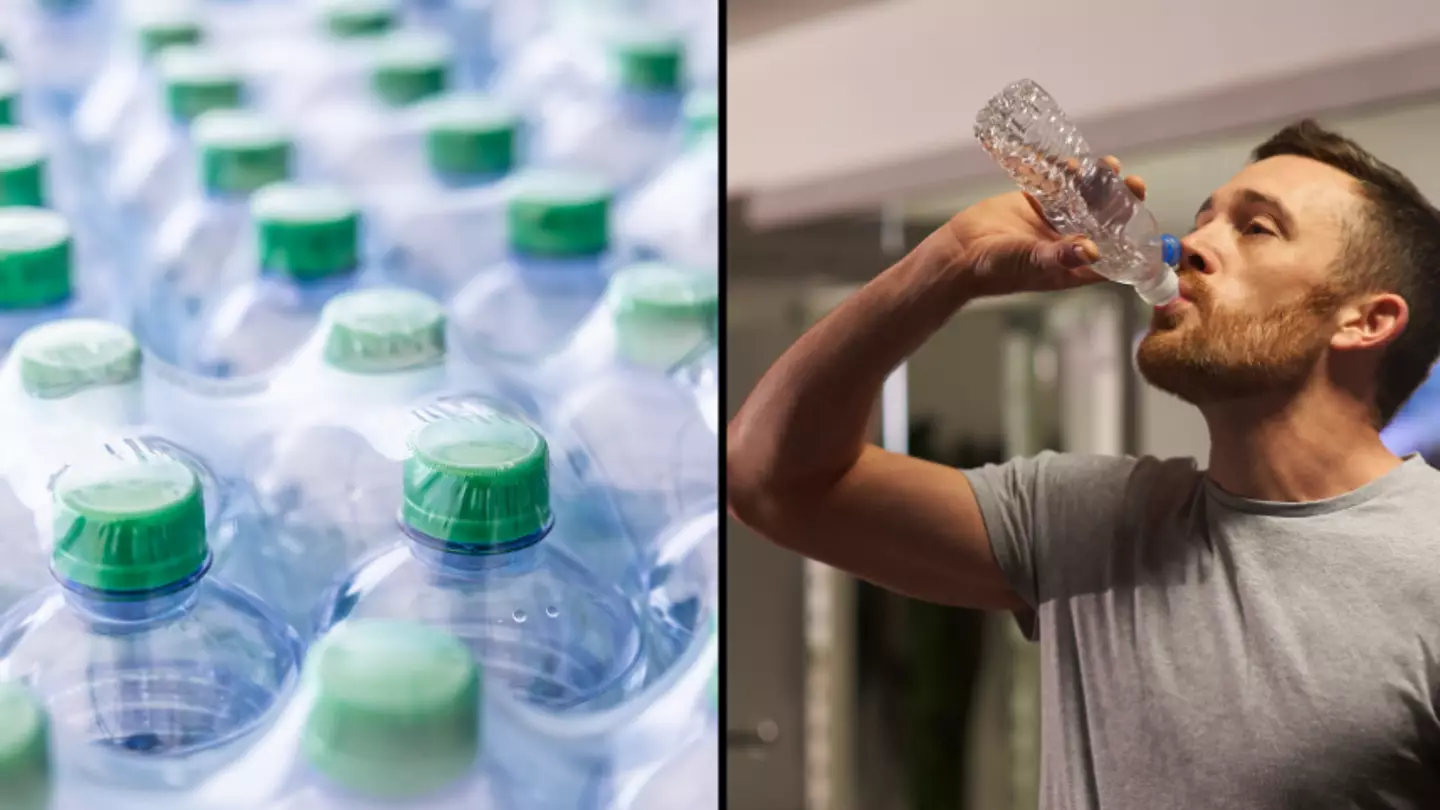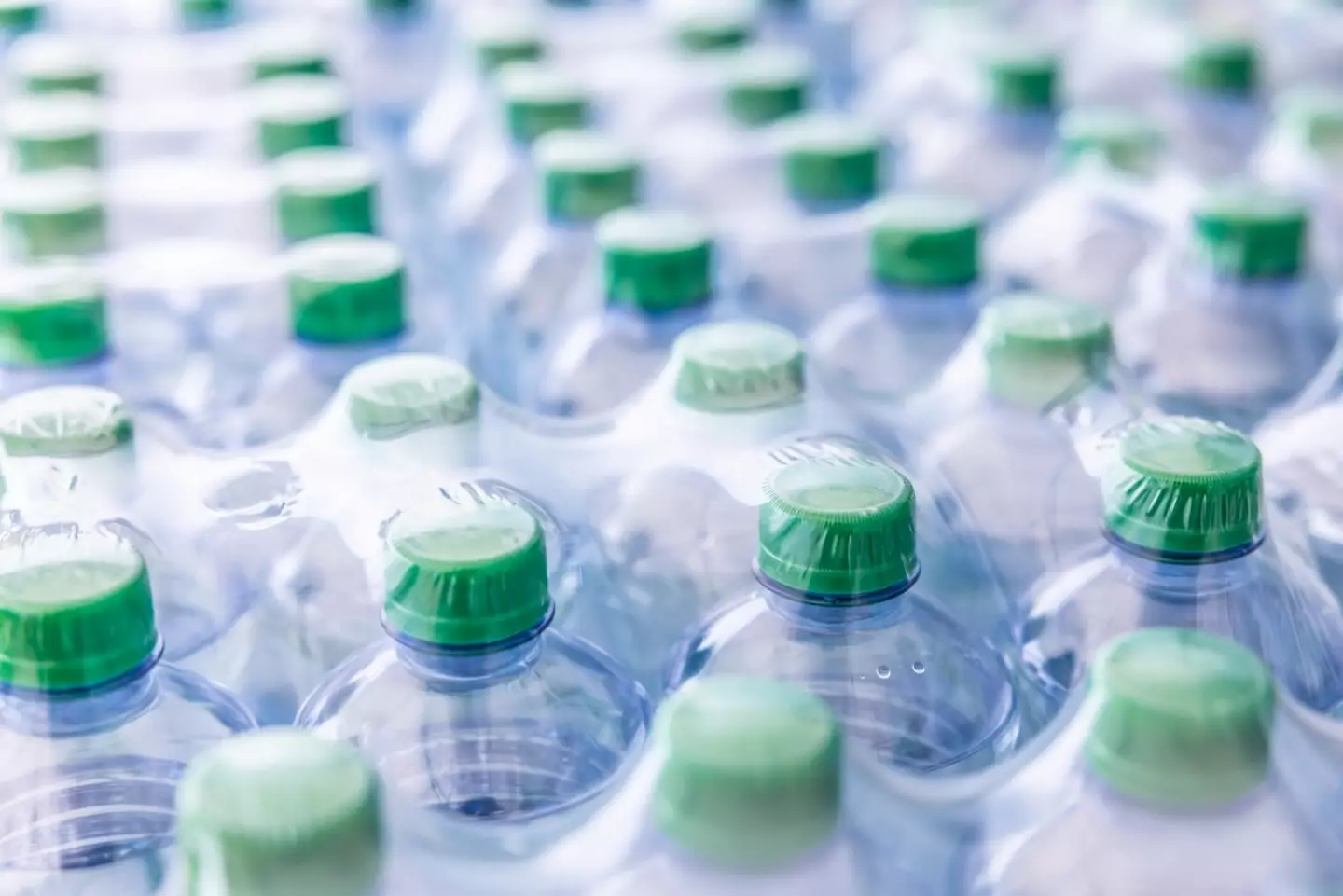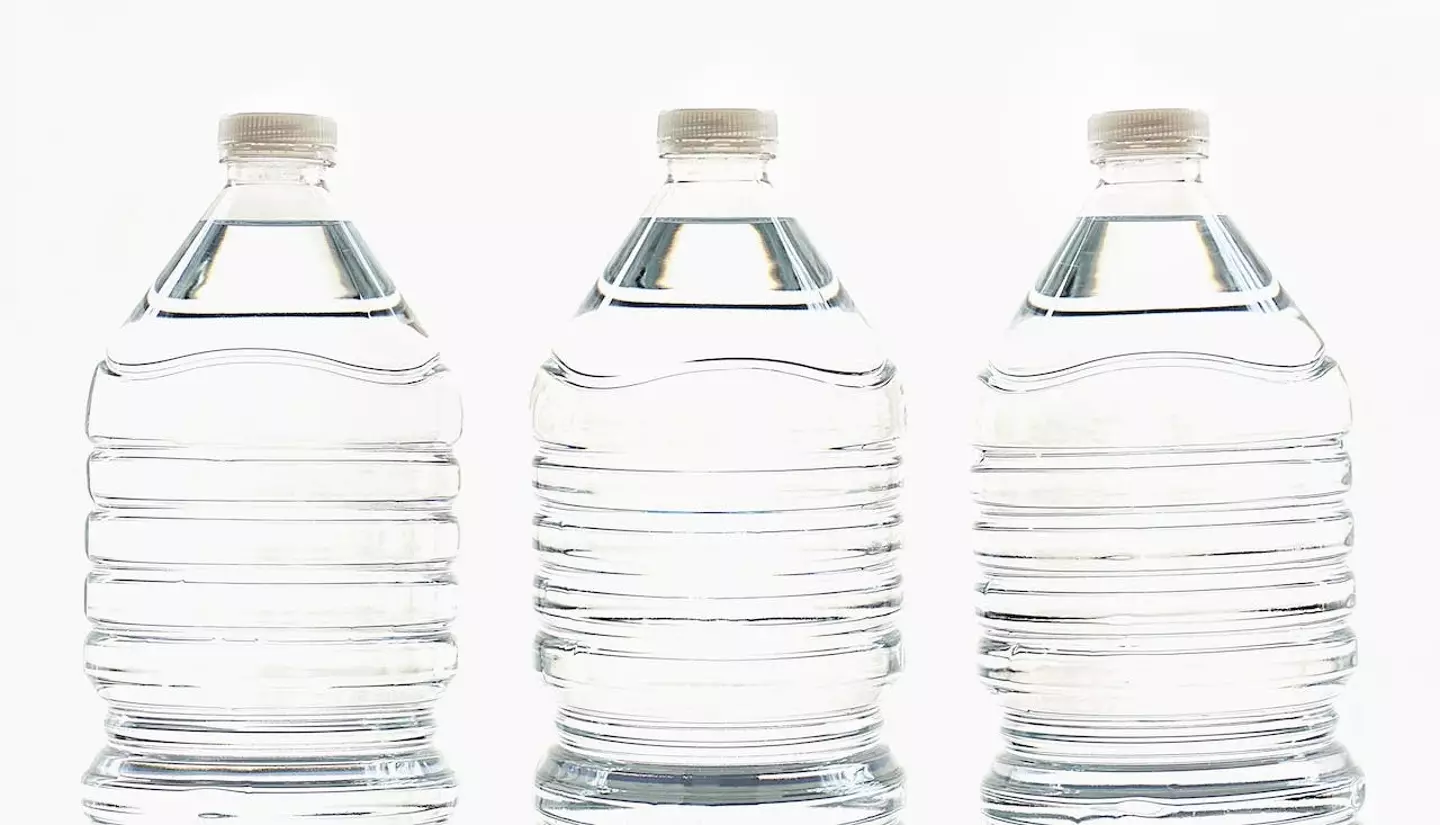
An important warning has been issued to people who drink bottled water.
It seems like every day there is something new we're being warned to stay away from, and now, new research is coming for those who drink water from plastic bottles.
First thing's first, drinking water is healthy and will always be healthy.
Advert
But where you get your water from and how you consume it is what's important here.
In recent years, we've been told to ditch drinking water from plastic bottles because of its impact on the environment, but now we have another reason to consider as well.
When drinking water from a plastic bottle, it's important to be wary of the 240,000 plastic particles found in the average one-litre bottle of water.
This is pretty worrying considering that there's only thought to be an average of 5.5 plastic particles per one litre of tap water.
Also known as nanoplastics, they are linked to cancer, birth defects and fertility problems.

These particles happen to be much smaller than microplastics, which were previously detected in water bottles, according to new research by the University of Columbia.
The new details were discovered by the use of lasers that analysed the particles from three popular brands of water in the US.
The danger with these nanoplastics is that they are so small that they can enter directly into blood cells and the brain.
So, the plastics used to make water bottles usually contain phthalates, which reportedly contributes to 100,000 premature deaths in the US each year.
And according to the National Institute of Environmental Health Sciences, phthalates are 'linked with developmental, reproductive, brain, immune, and other problems'.

The team's use of the new laser technology was named Stimulated Raman Scattering (SRS) microscopy and was invented by one of the paper's co-authors.
Study co-author Beizhan Yan, an environmental chemist at Columbia University’s Lamont-Doherty Earth Observatory, said: "This was not surprising, since that is what many water bottles are made of.
"PET is also used for bottled sodas, sports drinks, and products such as ketchup and mayonnaise.
"It probably gets into the water as bits slough off when the bottle is squeezed or gets exposed to heat."
A type of nylon, named polyamide, was yet another plastic particle found in bottles of water, that actually outnumbered PET.
"Ironically, this probably comes from plastic filters used to supposedly purify the water before it is bottled," he added.

“Previously this was just a dark area, uncharted. Toxicity studies were just guessing what’s in there.
"This opens a window where we can look into a world that was not exposed to us before."
“People developed methods to see nano particles, but they didn’t know what they were looking at,” explained the new study’s lead author, Naixin Qian, a Columbia graduate student in chemistry.
The researchers say they are now reaching beyond bottled water.
“There is a huge world of nanoplastics to be studied,” said Min.
Min states 'that by mass, nanoplastics comprise far less than microplastics', but 'it’s not size that matters'.
"It’s the numbers, because the smaller things are, the more easily they can get inside us."
According to Simplex Health, 'the only guaranteed way to get pure water is through steam distillation by using a water distiller'.
"Distilled water is 99.8 percent pure, which means it is purer that any bottled or tap water and purer than using any other type of filtration or purification method. Water is gently boiled to kill off viruses and bacteria," they explain.
"The steam produced is captured in a stainless steel coil where it cools to form pure water.
"This passes through an activated charcoal filter to remove any trace impurities. "It is recommended, to add minerals back to the water, as during the distillation process the water is purified to a point that it could be lacking these essential minerals.
"This intensive process can have an effect on the taste of water, which may not be to everyone's liking."
Topics: Food And Drink, Health, Science, UK News, US News, World News